My favorite teacher assigned poetry essays due every Monday, two pages analyzing poems he loved, wickedly un-Googleable. I stayed up late in our family’s dark-windowed office most Sundays, searching for meaning in phrases I didn’t understand. A flash of recognition only sometimes came. I kept one of the poems taped to my wall for years, unable to grasp what emotion, exactly, it made me feel so strongly.
It’s the elision of poetry that hooks me, the way a flickering image can bear the weight of the whole sketch. My love for poetry is misshapen, know-nothing, dumbly dependent on feeling, and it can take weeks of rereading for me to make sense of certain lines. Sometimes I hover at the doorway of understanding but can’t make my way inside. But coming to a poem as an amateur no longer feels like a barrier; sometimes my imprecise grasp makes the feeling cut deeper. It’s similar to the freedom I feel in art museums, surrounded by a craft distant and opaque to me. I can sink into the role of viewer, just letting the color pass through me.
So, a few poems for summer.
It’s the elision of poetry that hooks me, the way a flickering image can bear the weight of the whole sketch. My love for poetry is misshapen, know-nothing, dumbly dependent on feeling, and it can take weeks of rereading for me to make sense of certain lines. Sometimes I hover at the doorway of understanding but can’t make my way inside. But coming to a poem as an amateur no longer feels like a barrier; sometimes my imprecise grasp makes the feeling cut deeper. It’s similar to the freedom I feel in art museums, surrounded by a craft distant and opaque to me. I can sink into the role of viewer, just letting the color pass through me.
So, a few poems for summer.
It’s thunderstorm season. I sit and watch the storms through the kitchen window, a smudge of green. Lizards slip into the house. It’s the season of permission to do nothing. The Gulf is soupy, the air dense and wet. I read in long stretches on the couch, watch TV on my phone and take long walks at night, swimming through the humid dark. Ferry rides, mosquito bites, Melodrama, flip cup. Anything but writing.
Halfway through the year, here are some books I've loved: Running, by Cara Hoffman, which is hot and sun-bleached and alive and addictive. Innocents and Others by Dana Spiotta, insanely smart, best read in a tourist van rocketing along the blue edge of Costa Rica, pages ruined by the ocean. A Separation by Katie Kitamura, ice cold, the crispest prose. The Animators by Kayla Rae Whitaker, like The Interestings, only sadder and sexier and realer. The Days of Abandonment, a plunge back into Ferrante’s feverish world of women on the edge. And, my favorite of these last few months, The Idiot by Elif Batuman, which I read with near-manic delight, in thrall to its depiction of being 19 meandering through the mundanity of college, dumb and overwhelmed and doomed by desire.
I am also a bit obsessed with Mary Ruefle’s odd little book My Private Property, which is studded with poem-essays on the sadnesses of every color. They're pure feeling.
Halfway through the year, here are some books I've loved: Running, by Cara Hoffman, which is hot and sun-bleached and alive and addictive. Innocents and Others by Dana Spiotta, insanely smart, best read in a tourist van rocketing along the blue edge of Costa Rica, pages ruined by the ocean. A Separation by Katie Kitamura, ice cold, the crispest prose. The Animators by Kayla Rae Whitaker, like The Interestings, only sadder and sexier and realer. The Days of Abandonment, a plunge back into Ferrante’s feverish world of women on the edge. And, my favorite of these last few months, The Idiot by Elif Batuman, which I read with near-manic delight, in thrall to its depiction of being 19 meandering through the mundanity of college, dumb and overwhelmed and doomed by desire.
I am also a bit obsessed with Mary Ruefle’s odd little book My Private Property, which is studded with poem-essays on the sadnesses of every color. They're pure feeling.
Okay, some links.
I think about this a lot: Astronomers crack the secret of a beautiful, brief Sappho poem.
Writers look back on art they first saw a long time ago. Cara Hoffman remembers being “invisible and invincible.” Kyle Chayka writes about how certain pieces will "send a ripple streaming through the rest of your life.” Catherine Lacey weeps before a Cy Twombly, “moved by all that broken beauty.” (Also, a third grader’s poem written in front of a Twombly, “strangest of them all.”)
This profile of Lorde is the MOST charming. Subway rides with tinny headphones, midnight diners, wild dogs, color-coded heartbreak party songs. Also, “Happiness is for tourists write you little fucker.”
Monet’s home in Giverny / The London Review of Looks / Korean convenience stores / Alison Bechdel’s coming out story / Anxiety dreams / Landslide.
Jia Tolentino on the enduring magic of The Mixed-Up Files and the pleasure of a secret.
Before the internet / The first Pride flag / Love and confetti at City Hall / How to relax / George Bush’s painted atonements / Malingerer! / Traveling on Google street view.
Rest in peace Denis Johnson, tender heart, who cried in class and went out in his bathrobe looking “for a magic thread, a magic sword, a magic horse.”
All / the things I /embrace as new / are in / fact old things, / re-released: swimming, / the sensation of / being dirty in / body and mind / summer as a / time to do / nothing and make / no money.
“i have been too many things in the dead heat of time.”
Abbi Jacobson’s new podcast on contemporary art is a pure delight.
This essay on leaving a marriage and making lemon soup is a poem.
There’s an Ian McEwan quote I love: “What is it precisely, that feeling of 'returning' from a poem? Something is lighter, softer, larger — then it fades, but never completely.”
I think about this a lot: Astronomers crack the secret of a beautiful, brief Sappho poem.
Writers look back on art they first saw a long time ago. Cara Hoffman remembers being “invisible and invincible.” Kyle Chayka writes about how certain pieces will "send a ripple streaming through the rest of your life.” Catherine Lacey weeps before a Cy Twombly, “moved by all that broken beauty.” (Also, a third grader’s poem written in front of a Twombly, “strangest of them all.”)
This profile of Lorde is the MOST charming. Subway rides with tinny headphones, midnight diners, wild dogs, color-coded heartbreak party songs. Also, “Happiness is for tourists write you little fucker.”
Monet’s home in Giverny / The London Review of Looks / Korean convenience stores / Alison Bechdel’s coming out story / Anxiety dreams / Landslide.
Jia Tolentino on the enduring magic of The Mixed-Up Files and the pleasure of a secret.
Before the internet / The first Pride flag / Love and confetti at City Hall / How to relax / George Bush’s painted atonements / Malingerer! / Traveling on Google street view.
Rest in peace Denis Johnson, tender heart, who cried in class and went out in his bathrobe looking “for a magic thread, a magic sword, a magic horse.”
All / the things I /embrace as new / are in / fact old things, / re-released: swimming, / the sensation of / being dirty in / body and mind / summer as a / time to do / nothing and make / no money.
“i have been too many things in the dead heat of time.”
Abbi Jacobson’s new podcast on contemporary art is a pure delight.
This essay on leaving a marriage and making lemon soup is a poem.
There’s an Ian McEwan quote I love: “What is it precisely, that feeling of 'returning' from a poem? Something is lighter, softer, larger — then it fades, but never completely.”

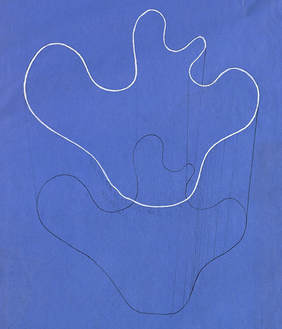
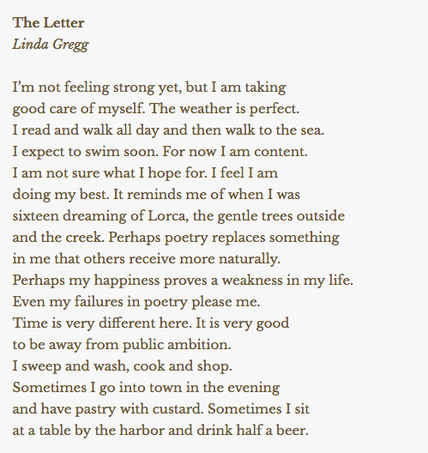
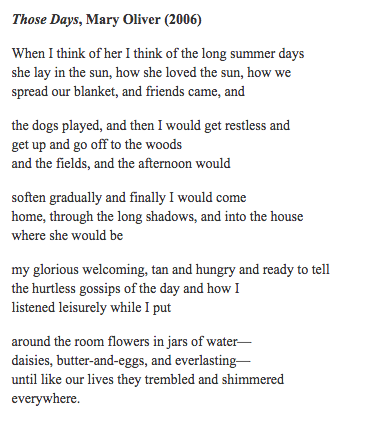

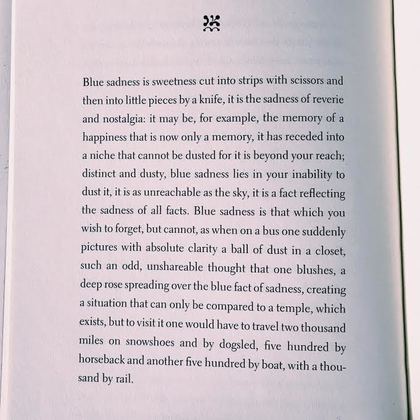
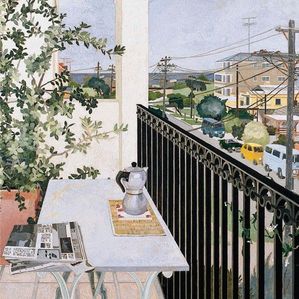
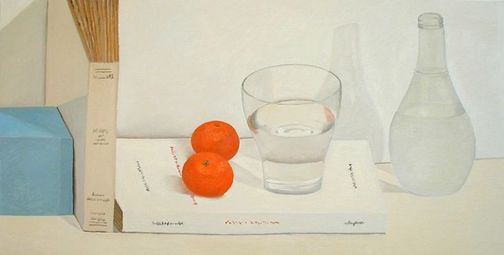
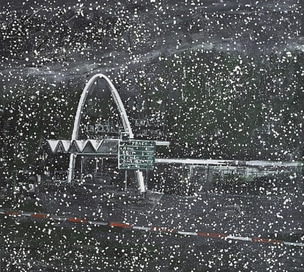
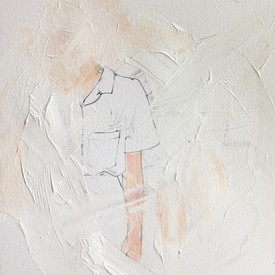
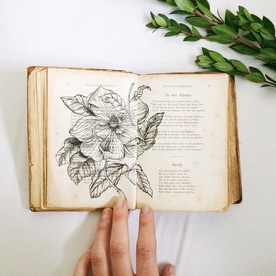
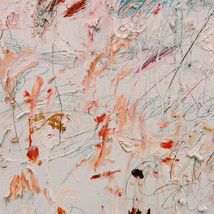

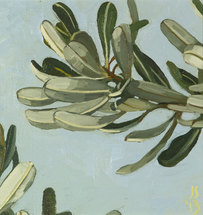
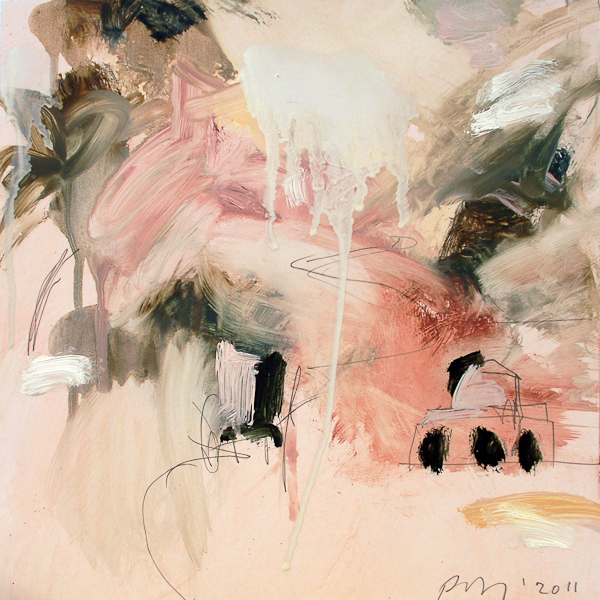
 RSS Feed
RSS Feed